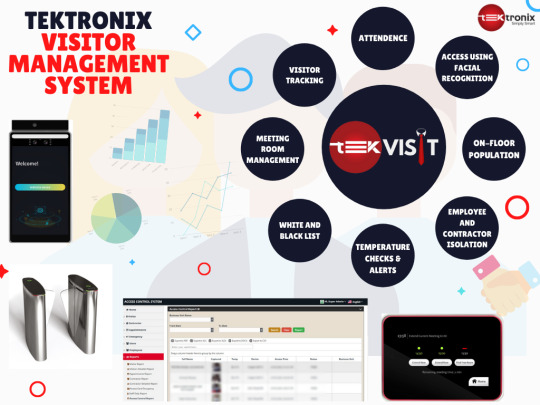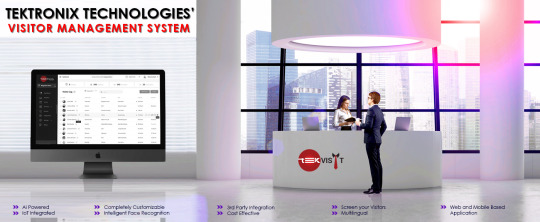#access control system software
Text
Efficient Vehicle Access Management with Ticketing Systems
Our advanced ticket-based system simplifies parking management by offering precise entry and exit control. Reduce congestion, improve customer experience, and maintain high security standards effortlessly.
#Ticket-Based Parking System#Vehicle Access Control#Parking Management Solution#Entry/Exit Control System#Parking Ticket System#Secure Parking Solutions#Automated Parking Entry#Parking Facility Management#Ticket-Based Access Control#Parking Ticketing Software
0 notes
Text
#Accounting Software In Dubai#Best Accounting Software In UAE#IT Infrastructure Services In Dubai#IT Services In Dubai#Managed IT Service Providers In Dubai#IT Support Companies In Dubai#IT Networking Solutions Company Dubai#Access Control System Suppliers In Dubai#Firewall Installation Services In Dubai#Accounting Software For Small Business In Dubai#Best Accounting Software Solutions In Dubai#Best Accounting Software For Medium Business In Dubai#Cheap Accounting Software For Small Business In Dubai#Best Cloud Based Accounting Software In Dubai#Best Low Cost Accounting Software For Small Business In Dubai#Best Accounting Software For Small To Medium Business In Dubai#Best Business Accounting Software Services In Dubai#Best Software Company In Dubai#Web Designing Services In Dubai#Best SEO Services In Dubai#Top HRMS Software In Abu Dhabi#Best ERP Solution Provider UAE#Best Project Management Software In Dubai#Fitness and Gym Management Software In Dubai#MEP Contracting ERP Software In Dubai#Best ERP Software For Metal Fabrication Industry In Dubai
0 notes
Text

#Facialrecognitiondubai #Facialrecognitionabudhabi
#facialrecognitionattendancesystemuae #facialrecognitionattendanceuae #facerecognitionattendancesystemsharjah
#facerecognitionattendancesystemajman #facerecognitionattendancesystem #facialrecognization
#facerecognitionattendancesystemsharjah #facerecognizationsoftwareuae
#access control system#access control system supplier abu dhabi#access control system in sharjah#facial recognization uae#facial recognization abu dhabi#facial recognization in sharjah#facial recognization ajman#facial recognization in bur dubai#facial recognization system in UAE#facial recognization Solutions in Abu Dhabi#facial recognition abu dhabi#facial recognition system#facial recognition saudi arabia#facial recognition in saudi arabia#facial recognition riyadh saudi#facial recognition solutions abu dhabi#Ai Based facial recognition Software Abu Dhabi#ai based facial recognition Systems in bur dubai#facial recognition software bur dubai#facial recognition software abu dhabi#facial recognition software in ajman#facial recognition software sharjah#facial recognition attendance system#facial recognition attendance system abu dhabi#facial recognition attendance system in ajman#facial recognition attendance system bur dubai#facial recognition attendance system sharjah#facial recognition attendance system alain#facial recognition attendance system riyadh saudi arabia#facial recognition attendance saudi arabia
1 note
·
View note
Text

Smart Turnstile Solutions: Revolutionizing Access Control in the UAE
In the dynamic landscape of the United Arab Emirates (UAE), the need for efficient and secure access control systems has become paramount. Smart turnstile solutions have emerged as a game-changer, offering advanced features that cater to the unique needs of various cities across the UAE. From Dubai to Fujairah, these innovative systems are reshaping the way organizations manage pedestrian flow and enhance security measures.
0 notes
Text
Parking Management System Saudi:-
With superior and advanced technology, The presence of a car parking management system certainly matters. The car owners get a comfortable parking experience. If the parking space is unavailable, the car owners come under stress. The presence of an efficient parking management system helps the user to find an empty parking space. This saves valuable time and fuel. The car owners find a more comfortable parking experience. https://www.prologicfirstss.com/parking-management.html
#payroll software Saudi#self pay parking systems saudi#parking management system saudi#car park access control systems
0 notes
Text
#Visitor Management Software abu dhabi#visitor management Systems UAE#Visitor Management Systems in Dubai#Visitor Access Control Systems in Sharjah#Visitor Registration systems in abu dhabi#visitor registration software in bur dubai#visitor access control systems in ajman#Visitor Access Control Systems in Ajman#visitor tracking system#Visitor Access Control Systems#visitor registration system
0 notes
Text
Enhancing Office Security and Efficiency.
Tektronix Visitor Management Software

In today's fast-paced world, managing office security and streamlining visitor processes are essential for maintaining a safe and efficient workplace. To address these needs, Tektronix Technology has developed cutting-edge Visitor Management Software that offers a comprehensive solution for modern offices. In this blog, we'll explore how Tektronix's technology is transforming the way offices manage visitors, ensuring a secure and seamless experience for both employees and guests.

Importance
Visitor management plays a crucial role in maintaining office security and professionalism. Traditional paper sign-in sheets and manual processes are not only inefficient but also pose security risks. A robust visitor management system is necessary to.
Enhance Security :- Prevent unauthorized access to your office premises by verifying the identity of visitors and cross-referencing them with watchlists or employee databases.
Streamline Processes :- Simplify the check-in and check-out processes, reducing wait times and ensuring a smoother experience for visitors.
Record Keeping :- Maintain accurate records of visitor data for compliance, auditing, and security purposes.
Improve Professionalism :- Impress clients and partners with a modern, efficient, and tech-savvy approach to managing visitors.

Features
Tektronix Technology has designed its Visitor Management Software with an array of features to meet the diverse needs of modern offices:
Visitor Registration :- Visitors can pre-register using a web-based interface or register upon arrival using a self-service kiosk. This minimizes wait times and ensures a faster check-in process.
Identity Verification :- The software can verify visitor identities through various means, including photo ID scanning, QR code scanning, or biometric authentication, ensuring that only authorized individuals gain access.
Access Control Integration :- Seamlessly integrate the software with your existing access control systems to grant temporary access badges or keycards to visitors.

Real-time Notifications :- Notify hosts via email, SMS, or app notifications when their guests arrive, enhancing communication and responsiveness.
Customization :- Tailor the software to your office's unique requirements, from branding and logo customization to language preferences.
Compliance and Reporting :- Automatically generate visitor logs and reports for compliance with security regulations and auditing purposes.
Data Privacy :- Tektronix prioritizes data security and privacy, ensuring that visitor data is handled in accordance with the highest standards.

Benefits
Enhanced Security :- Protect your office against unauthorized access and enhance overall security with identity verification and access control integration.
Improved Efficiency :- Streamline visitor processes, reduce wait times, and improve the overall visitor experience.
Compliance and Reporting :- Easily maintain records and generate reports to meet compliance requirements and enhance auditing capabilities.
Professional Image :- Impress visitors with a modern and efficient visitor management system that reflects your office's professionalism.

Scalability
Whether you have a small office or a large corporate headquarters, Tektronix's software is scalable to meet your needs.
Tektronix Technology's Visitor Management Software is revolutionizing the way offices manage visitors. With its advanced features, security enhancements, and focus on efficiency, it's a valuable addition to any office environment. By prioritizing security, professionalism, and user-friendliness, Tektronix is helping offices create a safe and welcoming environment for employees and guests alike.
youtube
Contact Details

Tektronix Technology Systems Dubai-Head Office
[email protected]
+971 50 814 4086
Office No.1E1 | Hamarain Center 132 Abu Baker Al Siddique Rd –
Deira – Dubai P.O. Box 85955
#Visitor Management System#Visitor Management Software Dubai#Visitor Management Software Abu Dhabi#Visitor Management Software UAE#Visitor Access Control System#Visitor Registration System#Visitor Management System Dubai#Visitor Management System Abu Dhabi#Visitor Management Software for School#Youtube
0 notes
Text
#Security System Software#ibmi security#ibm iseries access for windows#ibmi access control security#ibmi server access control#IBMi server for IT staff
0 notes
Text
smart lock door access control system
smart lock door access control system is a game-changer when it comes to securing your property. With enhanced security features, convenience, monitoring capabilities, and potential cost savings, it is no wonder that more and more people are opting for this advanced technology to keep their homes and businesses safe.

#door access control#smartlock#smart lock system#biometric system#smart lock installation company#door lock system#software door lock system#biometric door lock system#smart lock#door lock smart system#access control system
0 notes
Link
This type of system can be helpful in situations where a facility needs to closely monitor who is entering and exiting the building, such as in government buildings, airports, and other high-security locations. The use of Emirates ID or passport as a form of identification also ensures the accuracy of the visitor's personal information, such as name, address, and nationality.
Visitor Management System
Visitor Management System uae
Visitor Management System abu dhabi
Visitor Management System with AI integration
Visitor Management System Dubai
visitor management Building Integration Software uae
Access Control Software Building Integration
Access Control Software Building Integration UAE
Access Control Software Building Integration Abu Dhabi
Building Access Control System Integration Abu Dhabi
#visitor registration software abu dhabi#visitor registration system in uae#Building Access Control System Integration Abu Dhabi#Building Access Control System Integration dubai#Building Access Control System Integration sharjah#qr code access control system abu dhabi#qr code access control system in uae#qr code access con#QR Code Readers#access control system abu dhabi#access control system in sharjah#access control system in ajman#access control system in uae#visitor registration softwrae#visitor registration systems#visitor registration systems uae#building entrance system uae#building entrance system abu dhabi#building entrance system sharjah#building entrance system alain#building entrance system in bur dubai#building entrance system uae#building entrance system uae ajman#building entrance softwrae abu dhabi#building entrance software abu dhabi#building entrance software dubai#building control system dubai#building control system abu dhabi#building control system sharjah#building control system alain
0 notes
Text
Hanwha Dubai offers the best Access Control Systems in Dubai

For you every business and home, we have security and surveillance solutions by providing video surveillance accessories and the best surveillance software which good brand quality. Apart from these, we have Hanwha Techwin’s own brand of high-quality CCTV Cameras as well.

Visit to know -
0 notes
Text
#Electric locks & electric door lock system is providing by Secureye hotels#universities#banks. Make security more powerful with secureye electric-locks#Electromagnetic Door Lock 12V for Access Control Door Cabinet This electromagnet is popularly used in Access Control Systems#Card reader door locks work by identifying the card when it is swiped through the door. After a card is swiped#the lock system identifies it by reading the magnetic stripe or PIN and compares the data to the information stored in the software. The ca#cont. Raj:- 9312052014#7053551121#our website:- www.jptechnologies.in
0 notes
Text
youtube

VMS With Facial recognition technology offers a robust layer of security by accurately identifying individuals based on their unique facial features. Unlike traditional methods such as ID cards or manual verification, facial recognition eliminates the risk of forged or stolen credentials. By cross-referencing visitor faces with a database of known individuals, security personnel can quickly identify potential threats and take necessary precautions.
Visitor Managemnet System
Visitor Registration Software
Visitor Access Control System
Visitor Management Software UAE
Visitor Access Control Systems Abu Dhabi
Visitor Management With Face recognition
#visitor management system in bur dubai#visitor registration software abu dhabi#visitor registration system in alain#visitor access control system in alain#visitor registration system in ajman#visitor management system in qatar#visitor management sytsem in qator#visitor access control systems in saudi arabia#visitor registration software#visitor management system in alain#visitor management system for office#visitor management system for office uae#visitor management system for office abu dhabi#visitor management system for office in sharjah#visitor management system for office oman#visitor management system for office qatar#visitor management system for office alain#visitor management system for schools#visitor management system for schools uae#visitor management system for schools abu dhabi#visitor management system for schools in ajman#visitor management system for schools oman#visitor management system for schools qatar#visitor management system for schools bur dubai#Youtube
0 notes
Text

Magic In The Future Ideas
Universities have departments of magic, offering degrees in subjects such as magical anthropology, magical energy studies, comparative magic and magical theology.
Research magicians apply for grants from the government.
MRI scans detect what results from magic activity has on the brain
Some psychotherapists specialize in treating magic-traumatized victims
A large part of each nation's military budget goes towards magical weapons and defenses.
In some areas, magic is so frequent that the concentration of magical energies leads to problems: pets display disturbed behavior, wildlife fail to reproduce, and homing pigeons lose their way.
Instead of finding witchcraft cool, teenagers moan about having to study magic in school.
Software and apps enable ordinary people to use magic on their computers.
In some countries, denying the existence of magic is a punishable offense.
In totalitarian states, all magic is controlled by the government. Anyone found practicing magic without permission gets imprisoned.
Unprotected exposure to large doses of magic is harmful.
Magicians seek publication in peer-reviewed journals.
Environmentalists advocate the use of magic instead of fossil fuel.
Large-scale studies compare the effectiveness of different spells and magic systems on different people, complete with control groups and placebos.
Hospitals employ healing magicians the same way they employ surgeons and scrub nurses.
Teams of mages compete in televised contests.
After decades of unrestricted magic use, humans become aware that magic harms the environment. By that time, Earth suffers the consequences of heavy magic pollution.
─── ・ 。゚☆: *.☽ .* . ───
💎If you like my blog, buy me a coffee☕ and find me on instagram!
💎Before you ask, check out my masterpost part 1 and part 2
💎For early access to my content, become a Writing Wizard
#writing#writers and poets#writers on tumblr#creative writing#writeblr#helping writers#poets and writers#let's write#creative writers#resources for writers#writing process#writing inspiration#writing community#writing ideas#writing advice#writer#on writing#writing prompt#writerscommunity#writers life#writers community#writers block#writer stuff#writing practice#writing a book#writer on tumblr#writer things#writer problems#writer community#fantasy
520 notes
·
View notes
Text
Unpersoned

Support me this summer on the Clarion Write-A-Thon and help raise money for the Clarion Science Fiction and Fantasy Writers' Workshop!

My latest Locus Magazine column is "Unpersoned." It's about the implications of putting critical infrastructure into the private, unaccountable hands of tech giants:
https://locusmag.com/2024/07/cory-doctorow-unpersoned/
The column opens with the story of romance writer K Renee, as reported by Madeline Ashby for Wired:
https://www.wired.com/story/what-happens-when-a-romance-author-gets-locked-out-of-google-docs/
Renee is a prolific writer who used Google Docs to compose her books, and share them among early readers for feedback and revisions. Last March, Renee's Google account was locked, and she was no longer able to access ten manuscripts for her unfinished books, totaling over 220,000 words. Google's famously opaque customer service – a mix of indifferently monitored forums, AI chatbots, and buck-passing subcontractors – would not explain to her what rule she had violated, merely that her work had been deemed "inappropriate."
Renee discovered that she wasn't being singled out. Many of her peers had also seen their accounts frozen and their documents locked, and none of them were able to get an explanation out of Google. Renee and her similarly situated victims of Google lockouts were reduced to developing folk-theories of what they had done to be expelled from Google's walled garden; Renee came to believe that she had tripped an anti-spam system by inviting her community of early readers to access the books she was working on.
There's a normal way that these stories resolve themselves: a reporter like Ashby, writing for a widely read publication like Wired, contacts the company and triggers a review by one of the vanishingly small number of people with the authority to undo the determinations of the Kafka-as-a-service systems that underpin the big platforms. The system's victim gets their data back and the company mouths a few empty phrases about how they take something-or-other "very seriously" and so forth.
But in this case, Google broke the script. When Ashby contacted Google about Renee's situation, Google spokesperson Jenny Thomson insisted that the policies for Google accounts were "clear": "we may review and take action on any content that violates our policies." If Renee believed that she'd been wrongly flagged, she could "request an appeal."
But Renee didn't even know what policy she was meant to have broken, and the "appeals" went nowhere.
This is an underappreciated aspect of "software as a service" and "the cloud." As companies from Microsoft to Adobe to Google withdraw the option to use software that runs on your own computer to create files that live on that computer, control over our own lives is quietly slipping away. Sure, it's great to have all your legal documents scanned, encrypted and hosted on GDrive, where they can't be burned up in a house-fire. But if a Google subcontractor decides you've broken some unwritten rule, you can lose access to those docs forever, without appeal or recourse.
That's what happened to "Mark," a San Francisco tech workers whose toddler developed a UTI during the early covid lockdowns. The pediatrician's office told Mark to take a picture of his son's infected penis and transmit it to the practice using a secure medical app. However, Mark's phone was also set up to synch all his pictures to Google Photos (this is a default setting), and when the picture of Mark's son's penis hit Google's cloud, it was automatically scanned and flagged as Child Sex Abuse Material (CSAM, better known as "child porn"):
https://pluralistic.net/2022/08/22/allopathic-risk/#snitches-get-stitches
Without contacting Mark, Google sent a copy of all of his data – searches, emails, photos, cloud files, location history and more – to the SFPD, and then terminated his account. Mark lost his phone number (he was a Google Fi customer), his email archives, all the household and professional files he kept on GDrive, his stored passwords, his two-factor authentication via Google Authenticator, and every photo he'd ever taken of his young son.
The SFPD concluded that Mark hadn't done anything wrong, but it was too late. Google had permanently deleted all of Mark's data. The SFPD had to mail a physical letter to Mark telling him he wasn't in trouble, because he had no email and no phone.
Mark's not the only person this happened to. Writing about Mark for the New York Times, Kashmir Hill described other parents, like a Houston father identified as "Cassio," who also lost their accounts and found themselves blocked from fundamental participation in modern life:
https://www.nytimes.com/2022/08/21/technology/google-surveillance-toddler-photo.html
Note that in none of these cases did the problem arise from the fact that Google services are advertising-supported, and because these people weren't paying for the product, they were the product. Buying a $800 Pixel phone or paying more than $100/year for a Google Drive account means that you're definitely paying for the product, and you're still the product.
What do we do about this? One answer would be to force the platforms to provide service to users who, in their judgment, might be engaged in fraud, or trafficking in CSAM, or arranging terrorist attacks. This is not my preferred solution, for reasons that I hope are obvious!
We can try to improve the decision-making processes at these giant platforms so that they catch fewer dolphins in their tuna-nets. The "first wave" of content moderation appeals focused on the establishment of oversight and review boards that wronged users could appeal their cases to. The idea was to establish these "paradigm cases" that would clarify the tricky aspects of content moderation decisions, like whether uploading a Nazi atrocity video in order to criticize it violated a rule against showing gore, Nazi paraphernalia, etc.
This hasn't worked very well. A proposal for "second wave" moderation oversight based on arms-length semi-employees at the platforms who gather and report statistics on moderation calls and complaints hasn't gelled either:
https://pluralistic.net/2022/03/12/move-slow-and-fix-things/#second-wave
Both the EU and California have privacy rules that allow users to demand their data back from platforms, but neither has proven very useful (yet) in situations where users have their accounts terminated because they are accused of committing gross violations of platform policy. You can see why this would be: if someone is accused of trafficking in child porn or running a pig-butchering scam, it would be perverse to shut down their account but give them all the data they need to go one committing these crimes elsewhere.
But even where you can invoke the EU's GDPR or California's CCPA to get your data, the platforms deliver that data in the most useless, complex blobs imaginable. For example, I recently used the CCPA to force Mailchimp to give me all the data they held on me. Mailchimp – a division of the monopolist and serial fraudster Intuit – is a favored platform for spammers, and I have been added to thousands of Mailchimp lists that bombard me with unsolicited press pitches and come-ons for scam products.
Mailchimp has spent a decade ignoring calls to allow users to see what mailing lists they've been added to, as a prelude to mass unsubscribing from those lists (for Mailchimp, the fact that spammers can pay it to send spam that users can't easily opt out of is a feature, not a bug). I thought that the CCPA might finally let me see the lists I'm on, but instead, Mailchimp sent me more than 5900 files, scattered through which were the internal serial numbers of the lists my name had been added to – but without the names of those lists any contact information for their owners. I can see that I'm on more than 1,000 mailing lists, but I can't do anything about it.
Mailchimp shows how a rule requiring platforms to furnish data-dumps can be easily subverted, and its conduct goes a long way to explaining why a decade of EU policy requiring these dumps has failed to make a dent in the market power of the Big Tech platforms.
The EU has a new solution to this problem. With its 2024 Digital Markets Act, the EU is requiring platforms to furnish APIs – programmatic ways for rivals to connect to their services. With the DMA, we might finally get something parallel to the cellular industry's "number portability" for other kinds of platforms.
If you've ever changed cellular platforms, you know how smooth this can be. When you get sick of your carrier, you set up an account with a new one and get a one-time code. Then you call your old carrier, endure their pathetic begging not to switch, give them that number and within a short time (sometimes only minutes), your phone is now on the new carrier's network, with your old phone-number intact.
This is a much better answer than forcing platforms to provide service to users whom they judge to be criminals or otherwise undesirable, but the platforms hate it. They say they hate it because it makes them complicit in crimes ("if we have to let an accused fraudster transfer their address book to a rival service, we abet the fraud"), but it's obvious that their objection is really about being forced to reduce the pain of switching to a rival.
There's a superficial reasonableness to the platforms' position, but only until you think about Mark, or K Renee, or the other people who've been "unpersonned" by the platforms with no explanation or appeal.
The platforms have rigged things so that you must have an account with them in order to function, but they also want to have the unilateral right to kick people off their systems. The combination of these demands represents more power than any company should have, and Big Tech has repeatedly demonstrated its unfitness to wield this kind of power.
This week, I lost an argument with my accountants about this. They provide me with my tax forms as links to a Microsoft Cloud file, and I need to have a Microsoft login in order to retrieve these files. This policy – and a prohibition on sending customer files as email attachments – came from their IT team, and it was in response to a requirement imposed by their insurer.
The problem here isn't merely that I must now enter into a contractual arrangement with Microsoft in order to do my taxes. It isn't just that Microsoft's terms of service are ghastly. It's not even that they could change those terms at any time, for example, to ingest my sensitive tax documents in order to train a large language model.
It's that Microsoft – like Google, Apple, Facebook and the other giants – routinely disconnects users for reasons it refuses to explain, and offers no meaningful appeal. Microsoft tells its business customers, "force your clients to get a Microsoft account in order to maintain communications security" but also reserves the right to unilaterally ban those clients from having a Microsoft account.
There are examples of this all over. Google recently flipped a switch so that you can't complete a Google Form without being logged into a Google account. Now, my ability to purse all kinds of matters both consequential and trivial turn on Google's good graces, which can change suddenly and arbitrarily. If I was like Mark, permanently banned from Google, I wouldn't have been able to complete Google Forms this week telling a conference organizer what sized t-shirt I wear, but also telling a friend that I could attend their wedding.
Now, perhaps some people really should be locked out of digital life. Maybe people who traffick in CSAM should be locked out of the cloud. But the entity that should make that determination is a court, not a Big Tech content moderator. It's fine for a platform to decide it doesn't want your business – but it shouldn't be up to the platform to decide that no one should be able to provide you with service.
This is especially salient in light of the chaos caused by Crowdstrike's catastrophic software update last week. Crowdstrike demonstrated what happens to users when a cloud provider accidentally terminates their account, but while we're thinking about reducing the likelihood of such accidents, we should really be thinking about what happens when you get Crowdstruck on purpose.
The wholesale chaos that Windows users and their clients, employees, users and stakeholders underwent last week could have been pieced out retail. It could have come as a court order (either by a US court or a foreign court) to disconnect a user and/or brick their computer. It could have come as an insider attack, undertaken by a vengeful employee, or one who was on the take from criminals or a foreign government. The ability to give anyone in the world a Blue Screen of Death could be a feature and not a bug.
It's not that companies are sadistic. When they mistreat us, it's nothing personal. They've just calculated that it would cost them more to run a good process than our business is worth to them. If they know we can't leave for a competitor, if they know we can't sue them, if they know that a tech rival can't give us a tool to get our data out of their silos, then the expected cost of mistreating us goes down. That makes it economically rational to seek out ever-more trivial sources of income that impose ever-more miserable conditions on us. When we can't leave without paying a very steep price, there's practically a fiduciary duty to find ways to upcharge, downgrade, scam, screw and enshittify us, right up to the point where we're so pissed that we quit.
Google could pay competent decision-makers to review every complaint about an account disconnection, but the cost of employing that large, skilled workforce vastly exceeds their expected lifetime revenue from a user like Mark. The fact that this results in the ruination of Mark's life isn't Google's problem – it's Mark's problem.
The cloud is many things, but most of all, it's a trap. When software is delivered as a service, when your data and the programs you use to read and write it live on computers that you don't control, your switching costs skyrocket. Think of Adobe, which no longer lets you buy programs at all, but instead insists that you run its software via the cloud. Adobe used the fact that you no longer own the tools you rely upon to cancel its Pantone color-matching license. One day, every Adobe customer in the world woke up to discover that the colors in their career-spanning file collections had all turned black, and would remain black until they paid an upcharge:
https://pluralistic.net/2022/10/28/fade-to-black/#trust-the-process
The cloud allows the companies whose products you rely on to alter the functioning and cost of those products unilaterally. Like mobile apps – which can't be reverse-engineered and modified without risking legal liability – cloud apps are built for enshittification. They are designed to shift power away from users to software companies. An app is just a web-page wrapped in enough IP to make it a felony to add an ad-blocker to it. A cloud app is some Javascript wrapped in enough terms of service clickthroughs to make it a felony to restore old features that the company now wants to upcharge you for.
Google's defenstration of K Renee, Mark and Cassio may have been accidental, but Google's capacity to defenstrate all of us, and the enormous cost we all bear if Google does so, has been carefully engineered into the system. Same goes for Apple, Microsoft, Adobe and anyone else who traps us in their silos. The lesson of the Crowdstrike catastrophe isn't merely that our IT systems are brittle and riddled with single points of failure: it's that these failure-points can be tripped deliberately, and that doing so could be in a company's best interests, no matter how devastating it would be to you or me.

If you'd like an e ssay-formatted version of this post to read or share, here's a link to it on pluralistic.net, my surveillance-free, ad-free, tracker-free blog:
https://pluralistic.net/2024/07/22/degoogled/#kafka-as-a-service

Image:
Cryteria (modified)
https://commons.wikimedia.org/wiki/File:HAL9000.svg
CC BY 3.0
https://creativecommons.org/licenses/by/3.0/deed.en
519 notes
·
View notes
Link
hid door access control system , hid door access control system abu dhabi , hid door access control system sharjah , hid door access control system in bur dubai , hid door access control system in alain , hid door access control system in sharjah , hid access control system software
#HID Access Control Systems in uae#HID Access Control#hid access control#HID Access control systems in bur dubai#hid access control system#hid access control system in uae#hid access control system in bur dubai#hid access control system in ajman#hid access control systems#hid access control systems uae#hid access control systems in ajman#hid access control systems alain#hid access control systems abu dhabi#hid access control system installation#hid access control system installation abu dhabi#hid access control system installation in uae#hid access control system installation ajman#hid access control system installation in bur dubai#hid access control system installation sharjah#hid access control system software uae#hid access control system software in sharjah#hid access control system software in bur dubai#hid access control system software in alain#hid door access system uae#hid door access system in bur dubai
0 notes